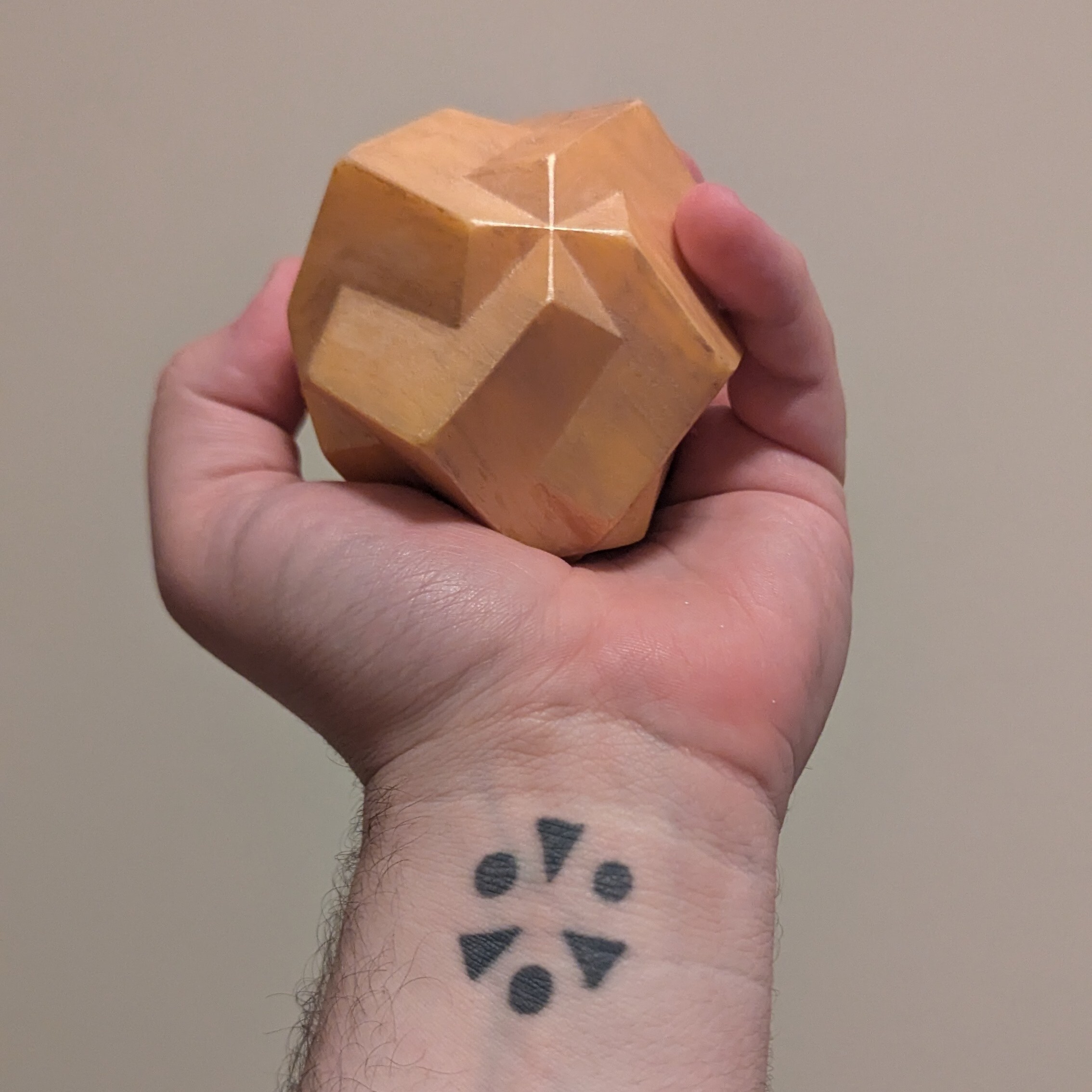What about similar oddities in English?
(This question is inspired by this comic by https://www.exocomics.com/193/ (link found by [email protected]))
Edit: it’s to its in the title. Damn autocorrect.
One of my favourites is the word jam, which can mean:
- A fruit preserve
- Traffic that’s stopped
- To play music
- A door that won’t open
- A difficult situation
- To force something in somewhere it’s not supposed to be
- To interrupt a signal
- Something you don’t like or can’t do (“that’s not my jam”)
And probably others, all spelled and pronounced the same way but with wildly different meanings depending on the context.
The other English thing I find super interesting is how there’s a sort of unspoken but very clearly understood order to adjectives. So for example, if I say “The big old red wooden door” it works as a description, but if I say “The wooden old red big door” it sounds weird even though it’s the same information. People aren’t usually formally taught the order (as far as I know), but everyone seems to understand it.
Would be interested in more about the order - wondering if there is a name for that? I have been called out by teachers and friends and colleagues about strange sentences and it was often because I wouldn’t write the ‘normal’ way. I’ve learned the conventions over the years and often find myself making edits to swap words and phrases around to meet expectations.
Apparently it’s called the Royal Order of Adjectives, and it’s essentially: determiner, opinion, size, shape, age, colour, origin, material, qualifier.
You don’t have to use all of those in the description, but that’s broadly the order to use them in to make it sound ‘right’. So for example in the comment I made above, it fits because I used:
- determiner (The)
- size (big)
- age (old)
- colour (red)
- material (wooden)
in that order. I’m sure I was never taught that in any organized way (I just had to look up what it was called lol) but I still got it in the right order anyway just by typing it out in the way that felt right, which I think is interesting.
Welcome to english, where rules are actually the exceptions
I before E, except after C!
As long as you don’t count the word caffeine. Or protein. Or species. Or seize or heinous or leisure or weird or feign or their or reignite or any of the other 923 words that are exceptions to this rule lol.
The English language is so retarded yet we use it for international communication, and it is too late to stop it.
The problem is the spelling, not the language. But the problem with spelling reform is that it necessarily favours certain dialects over others so you can never please everyone.
I found it! https://www.exocomics.com/193/
Nice! Thank you
The meta aspect of ‘shit’ has to be up there.
I’ve never been a fan of read/read/red They’re too popular to all be comingled like that.
Just place read/read with Peruse/Perused
The digraph oo is pronounced at least six different ways:
- boot, proof, boost, scoop, moon
- book, foot, look, cookie, good
- floor, poor, door, moor
- flood, blood
- zoology, cooperative
- brooch (just brooch; there doesn’t seem to be any other word in the whole language using this sound for oo).
Are the first 2 lines really different?
Genuine question from a non native speaker.
first line is a long oo, second line is a short oo.
Oh I see it now. Thanks for the explanation
That’s the fun part, depending on your dialect and regional accent, sometimes there is no discernable difference in some of these lines. But each line has distinct pronunciation from each other in some dialects.
Yeah I went through them again and see how it makes a slight difference but I am slavic and you can definitely hear it when I speak especially with my þ, ð and r sounds. The r especially after speaking for more than 15 minutees my tongue just gives up and I cannot make the weird soft english version of it. The probounciations I use are all over the place.
If you want to have some fun with US regional accents , Baltimore is a classic.
https://youtu.be/Esl_wOQDUeE (1min)
Oh the iohn ohn uhhrn irn. That’s a classic
Ehh technically I think they are the same but in common pronunciation they differ subtly. Don’t overthink it though.
Brooch and mooch.
But, aren’t these the same sounds as boot / proof / boost etc.?
Brooch is pronounced like roach
It may be pronounced either way, and may also be spelled “broach”, an alternate spelling which is very common although probably slightly less than this chart implies given multiple meanings of “broach”.
I’m not really informed on this history of this word, but I think it’s possible that the “brooch” spelling increased in frequency along with the pronunciation that rhymes with “mooch” while people who pronounce it to rhyme with “roach” are more likely to spell it as “broach”.
Floor/door and poor might differ depending on dialect
And the whole point of zoology and cooperative is that they aren’t digraphs (hence why some super posh people write coöperative)
“well” is a noun, a verb, an adjective, an adverb and an interjection
Words that produce the same sounds should have same spelling. Read in past tense and red is the same sound, so why isn’t past tense of read - red?
Why most ‘c’ in words produce ‘k’ sounds?
Car and kar also produce the same sounds, so why C instead of K?
The comedic timing of this strip is actually really good.
English pronunciation is weird. It can be mastered through tough thorough thought though.
English a very difficult language
Façade is written using a letter that doesn’t appear in English language keyboards (or in any other English word that I’m aware of).
Just like naïve
Using loan words is cheating, but also disqualifies half the English language
Thing is, reasonable languages adapt loan words to their own rules to make their speakers’ lives easier.
English, though? Nah, English just stalks other languages in dark alleys, stabs them, rips some random words off, and runs away giggling like a maniac, bits of the original language dragging behind, leaving a trail of gore.
That’s how you end up with things like façade, or naïve, or fiancé, or the plural of radius being radii, or château / châteaux, or referendum / referenda, and so on, turning what should be a matter of just applying some standard rules into a veritable minefield of non-standard forms which must be memorised by its speakers.
It does make learning other languages fun. Currently in the middle of French, and there’s so many words i already know. Eg:
- Déjà vu - already seen
- Cul-de-sac - butt (bottom) of the bag
- Laissez faire - let do/let make
- Lieu - place
one would say that word is a
what if we just change the past tense to red? simpler?
Make it
redd, to easily distinguish from the color.The irony with using Connect is that the text for “redd” being done in code format makes it red. 🤣

😄
People already struggle with ‘led’ being the past tense of “lead”. It seems like quite a few people extend the “read/read” rule to “lead”.
In other words, I don’t know if that would actually solve anything 😅
Maybe to reed (infinitive) and read (past tense), but you can usually infer which one it is from context so no need to change the spelling.
“I read a lot of books about English spelling!”
Is this past tense?
Depends on the context
“I read the magazines” isn’t clear on its own, but with other text it probably is.
















